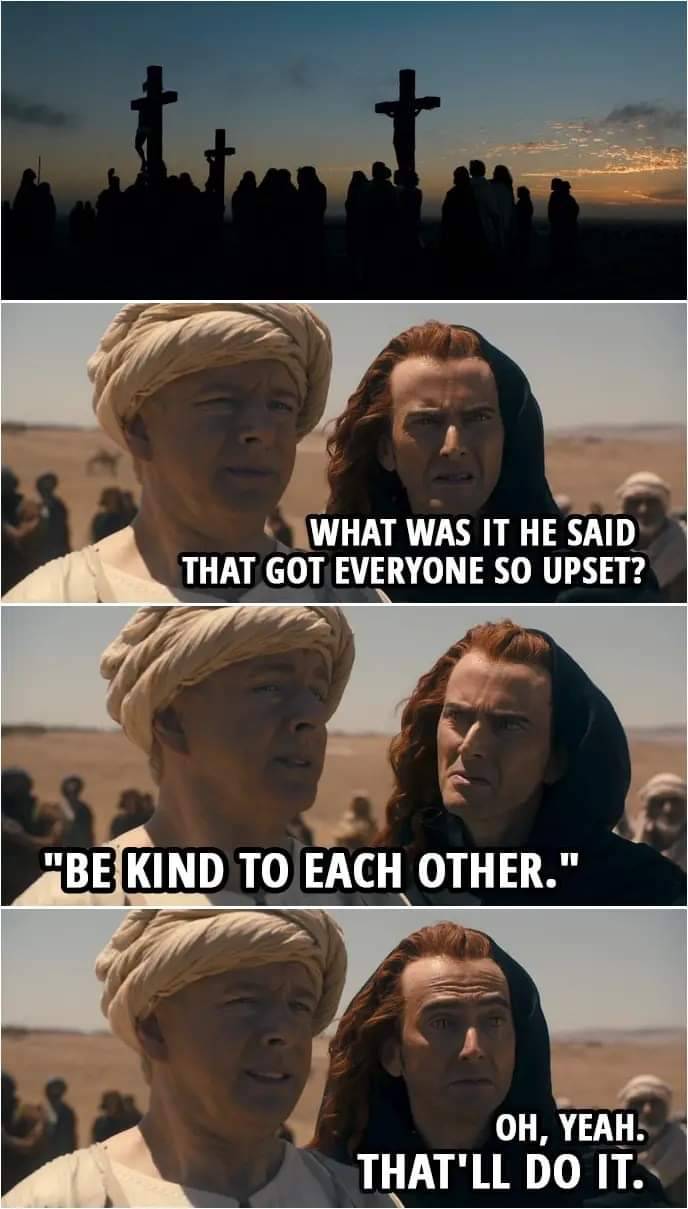this post was submitted on 01 Apr 2024
1403 points (99.0% liked)
memes
15473 readers
4252 users here now
Community rules
1. Be civil
No trolling, bigotry or other insulting / annoying behaviour
2. No politics
This is non-politics community. For political memes please go to [email protected]
3. No recent reposts
Check for reposts when posting a meme, you can only repost after 1 month
4. No bots
No bots without the express approval of the mods or the admins
5. No Spam/Ads
No advertisements or spam. This is an instance rule and the only way to live.
A collection of some classic Lemmy memes for your enjoyment
Sister communities
- [email protected] : Star Trek memes, chat and shitposts
- [email protected] : Lemmy Shitposts, anything and everything goes.
- [email protected] : Linux themed memes
- [email protected] : for those who love comic stories.
founded 2 years ago
MODERATORS
you are viewing a single comment's thread
view the rest of the comments
view the rest of the comments

That does not say it's busted at all. It only says the citation is often wrong. However, they hyperbole is still identical no matter the translation. Regardless of what the literal translation should be, it says a rich man can't enter heaven. I don't know how discussing the literal translation could possibly be used to soften that because it's pretty clear. I think some people just want a conspiracy where there isn't one. Literally no one is arguing it doesn't mean rich men can't enter heaven.
Yes, people are arguing it doesn't mean rich men can't enter heaven. People have been coming up with various interpretations of that Bible passage for that explicit purpose ever since Jesus said it - a couple thousand years - for which we have written records.
The "eye of a needle is a gate in Jerusalem" interpretation was dug up from 11th century writings by televangelists who - believe it or not - used it to argue that you could, in fact, fit a camel through it with great effort.
Who is? I've never seen that. I don't believe that at all. It's pretty clear what was meant, and this isn't the only place it's said.
There weren't TVs in the 11th century, so no televangelists. I know what you mean by this, but that's the problem. Language is weird. Terms come and go, and someone from the 11th century wouldn't know what that means, just as we don't know exactly what was said by people who wrote the Bible.
I don't even believe Jesus was a real person. We really don't have much evidence for that. I sure as hell don't trust the translation of the King James Bible, which isn't even the original Hebrew, as to what was said exactly. The meaning is cool, and there's no arguing what it means, but it could be referring to anything, and idioms come and go and we can only guess what they are.
You actually didn't know what they meant by this. They were saying that a televangelist, in the age of television, dug up this interpretation from the 11th century to argue, in the age of television, that the lesson was that it was challenging for the rich to get into heaven but not impossible.
But it does serve the more fundamental point that language is complicated and prone to misinterpretation. And that people will voice confidently incorrect opinions based their misunderstanding.
There's nothing that irritates me more than when people misinterpret me not because of vague language, but due to poor reading comprehension. Except perhaps when people admire TV villains because of poor media literacy.